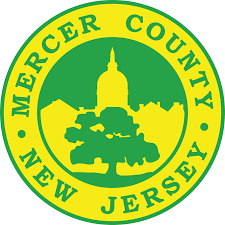The Mercer County Board of Freeholders have furthered discussions on whether to adopt a $332.7 million budget to fund the operation of the county during 2020.
After a continued introduction of the budget on April 23, freeholders voted unanimously to recess the introduction for an end-of-May public hearing on the budget’s potential adoption.
Freeholder Chairman Andrew Koontz, Vice Chairman Samuel Frisby and Freeholders John Cimino, Ann Cannon, Lucylle Walter, Nina Melker, and Pasquale Colavita voted “yes” on the measure.
The budget had been originally introduced during a meeting on Feb. 25.
According to the introduced budget before the outbreak of COVID-19, county officials were projecting the following revenues in 2020: $271.3 million to be raised from residential and commercial property owners in a tax levy; $47.6 million in miscellaneous revenues; and use of $13.7 million from surplus (savings).
“Our biggest problem with COVID-19 right now is not the county’s expenditures, it’s the revenue loss. That is where we are getting harmed with COVID,” said David Miller, chief financial officer and treasurer. “We have an airport that is closed and I am using closed in quotes it is not an absolute shutdown. The clerk’s office and real estate is grinding to a halt and the parks are closed. The surrogate’s office is one that continues to bringing in money.”
He added that the county faces a big uncertainty.
“The one big uncertainty is when are we going to reopen and if … we can we work our way past this before the budget is adopted and see where we are at. If it is not May then it is going to be much harder to finalize revenue trends for the budget,” Miller said.
In the introduced budget, appropriations listed for 2020 included the following categories: $88 million in miscellaneous items such as community college, lease rental payments and social services; $43.48 million for insurance, $39.87 million for Department of Law and Justice (Prosecutor’s Office, County Clerk’s Office and Sheriff’s Office), $37.6 million for public safety, $29.2 million for general government, $25.9 million for debt service, and $20.6 million for transportation and infrastructure.
In 2019, the budget totaled $352.2 million. Residential and commercial property owners paid $269.3 million in taxes to support the budget. Other revenues included $69.18 million in miscellaneous revenues and the use of $13.7 million in surplus.
The impact of the 2020 budget on a property owner’s tax bill will not be known until a county tax rate for each of the 12 municipalities is determined.
The county taxes a property owner pays will be determined by the county tax rate that is established for his/her municipality and the assessed value of their property.
County taxes are just one item on a property owner’s overall tax bill, which also includes municipal taxes and school taxes.

